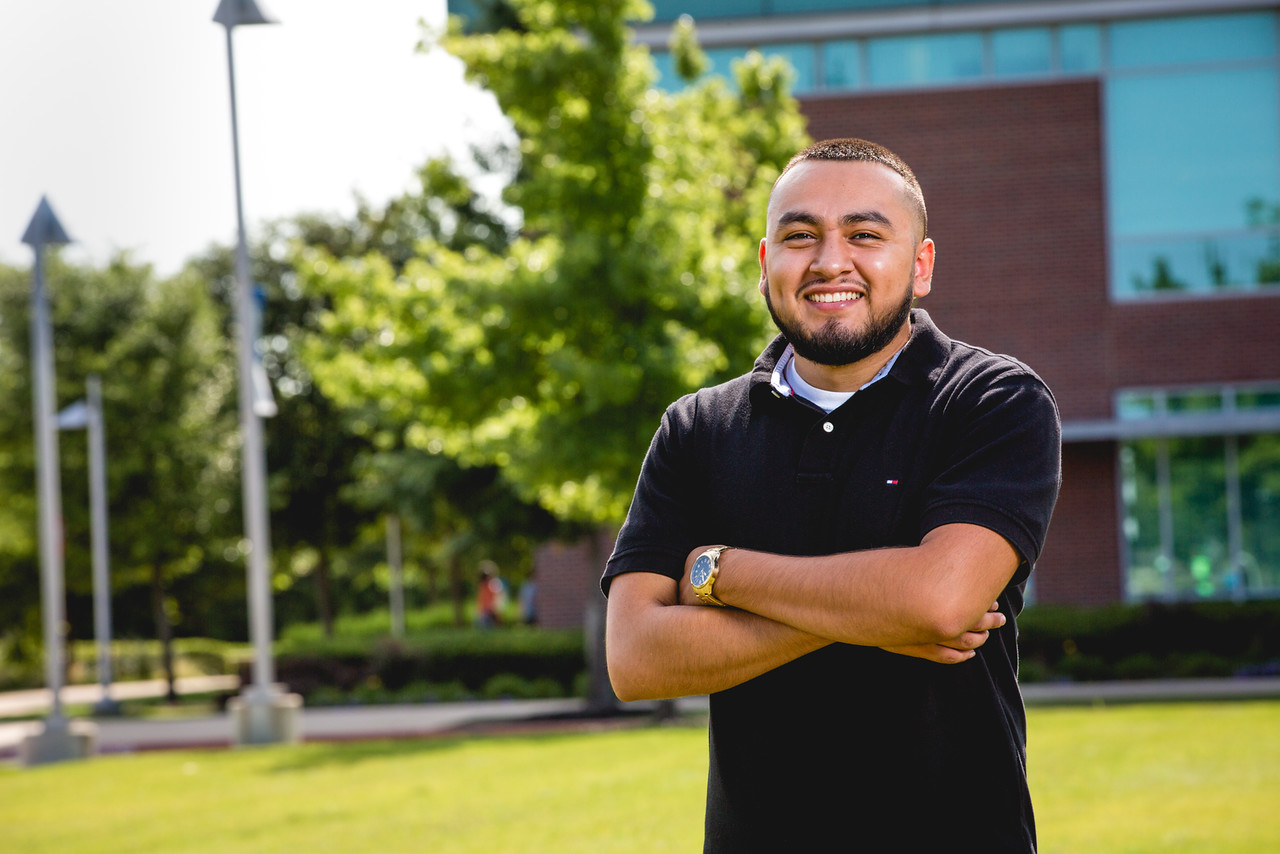- UNT Dallas
- Graduate School
- Graduate Degree Programs
- Master of Science in Clinical Mental Health Counseling
Master of Science in Clinical Mental Health Counseling
More Than a Career, A Commitment to Care
The UNT Dallas Master of Science in Clinical Mental Health Counseling is designed for those passionate about making a meaningful difference in the lives of others.
This CACREP-accredited program prepares students to become Licensed Professional Counselors (LPCs), equipped to support individuals and families in diverse clinical and community settings. Blending in-person, hybrid, and online instruction with practical fieldwork, the program develops the skills and compassion essential for success as an effective counselor. The Clinical Mental Health Counseling program at UNT Dallas is accredited by the Council for Accreditation of Counseling and Related Educational Programs (CACREP).
What Is Clinical Mental Health Counseling?
Clinical mental health counseling is a vital healthcare profession dedicated to helping individuals overcome emotional, behavioral, and psychological challenges. Licensed professional counselors (LPCs) work closely with clients to develop personalized treatment plans that promote mental wellness, emotional resilience, and improved quality of life.
These licensed counselors provide essential services, including mental health assessments, individual counseling, group therapy, crisis intervention, and care coordination with other healthcare professionals. Their goal is to empower clients to manage mental health disorders, cope with life’s stresses, and achieve greater emotional balance and independence. Here’s the program format:
60
Credit Hours
- 30 credits of core courses
- 9 credits of clinical core courses
- 21 credits of track-specific courses
- Graduate in 36-48 months, depending on your pace
Flexible
Course Lengths
- 16-week sessions (Fall/Spring)
- 10-week sessions (Summer)
Flexible
Delivery Options
- In-person
- Hybrid
- Online courses
Concentration(s) and Tracks
Students pursuing the M.S. in Clinical Mental Health Counseling can also earn Texas School Counseling Certification by applying to the School Counseling track. This requires meeting GPA and admission criteria, completing two specialized courses, and fulfilling a school-based internship with 160 hours of supervised counseling. Graduates meet the requirements for both Texas LPC licensure and school counselor certification, preparing them for a diverse range of counseling careers.
Students completing the entire sequence of coursework will meet the educational requirements for the Texas State License in Professional Counseling. However, the State of Texas stipulates additional requirements such as passing the national counseling exam and obtaining 3,000 clock hours of supervised clinical experience after the Master's degree has been obtained.
Our Degree meets Rigorous Standards
The MS program in Clinical School Counseling is designed to meet the rigorous standards of CACREP.
In keeping with CACREP standards, we have provided the following reports.
The MS program is designed to comply with existing Texas Education Agency standards for professional certification.
Students take the TEA Certification Exam for School Counseling during their Internship course as well as a comprehensive examination. Internships are completed in an elementary or secondary school and are supervised by a Texas Certified School Counselor.
These program areas meet the educational requirement for Certification as a School Counselor in Texas; however, candidates must also have two years of teaching experience as teacher of record (not as a substitute teacher) and pass the TExES-Counselor examination to be eligible for School Counseling Certification in Texas. Individuals seeking certification in other states are urged to contact the appropriate state(s) because their requirements may differ.
The MS program in Clinical School Counseling is designed to comply with existing Texas Behavioral Health Executive Council standards.
Students complete an internship in a community counseling setting and are supervised by a Texas Licensed Professional Counselor. Students take the National Counselor Exam during their Internship course.
To obtain a License in Professional Counseling, the State of Texas stipulates applicants pass the National Counselor Exam and then complete 3,000 clock hours of supervised clinical experience after the Master’s degree has been completed. Individuals seeking certification in other states are urged to contact the appropriate state(s) because their requirements may differ.

Where Purpose Meets Profession
Earning your Licensed Professional Counselor (LPC) credential opens doors to a rewarding career dedicated to improving mental health and well-being. Whether working in clinical settings, community organizations, or private practice, you’ll provide critical support to individuals, families, and groups by empowering them to overcome challenges and thrive. Students pursuing the School Counseling track are also prepared to support students from Pre-K through 12th grade and meet Texas certification requirements to become licensed school counselors.
Program FacultyProgram Coordinator Dr. Sam Bore'Program Fact Sheet
Career Options Include:
- Rehabilitation Counselors
- Private Practice Therapist
- Addiction and Substance Abuse Counselor
- Child and Adolescent Counselor
- Family and Marriage Therapist
- Geriatric or Elder Care Counselor
- Crisis Intervention Specialist
- Pastoral or Faith-Based Counselor
- Community Mental Health Advocate
- Behavioral Health Specialist
- School and Career Counselors